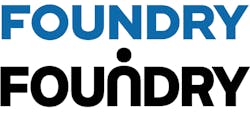Forbearing readers will recall my preoccupation with the misappropriation of words, because giving something a name that is false is a method of deception, or at least it encourages misunderstanding, even if that is not the intention. For example, the frequent reference to “communities” is a convenient way for a source to attach legitimacy to an idea – because he or she can claim to be speaking for thousands or millions that the listener dare not or cannot question. There are communities, of course, but despite the insistence of authors and reporters, and politicians and activists, communities rarely define themselves with the convenient parameters assigned by those who would “speak” for them. Even more rarely do such communities find the consensus views that corroborate those sources’ arguments.
Cynical redefinition is just one reason to watch how words are used to persuade us. Another reason is ignorance. It’s a simpler, and probably a more serious problem than cynicism, because using words without understanding the meaning can make one vulnerable to those who would take advantage that ignorance. Emphasizing one’s point with “literally” is a telling habit for some people who should know better. Calling something “very unique” or describing an alternative as an “optimum solution” will let some listeners know you’re not quite sure of what you’re saying.
But the misappropriate word that I tag nearly every day, often several times, is “foundry.” I’ve written before about the habit of businesses and enterprises that are not foundries have taken to calling themselves foundries. Silicon chip makers are the most obvious “appropriators,” but there are entertainment and retail establishments, hotel and housing developments, art galleries and churches that adopt the name – each with an explanation for calling themselves something that they are not.In a practical way this is a problem for me because I have a professional reason for keeping track of developments that involve foundries or affect foundries. I do not work in a foundry, but I have custodial role for the industry, looking out that it is honestly presented to the world that will have trouble knowing what is a foundry and what is called a foundry.
An announcement sent recently seemed designed to cross my wires: “After Nearly 60 Years, IDG Communications Becomes Foundry.” So, a business that publishes business-to-business news about the technology sector, with titles and brands like CIO, Computerworld, InfoWorld, MacWorld, PCWorld, and TechHive, is now … Foundry. According to the business, its rebranding “marks the company’s transformation from legacy media network to integrated marketing technology (MarTech) and data provider.”
This is not simply an inaccurate use of the word “foundry” – which is not the term for a place that provides integrated marketing technology and data, but that’s rather obvious here. This rebranding also signals some of the other explanation for misapplying a word or name: aspiration, or association, to the traits and or strengths associated with actual foundries: durability, craftsmanship, and originality. The new Foundry may have all those qualities, but somehow it cannot locate its own term for that.
So, it appears to me that all these reasons for misappropriation – deception, ignorance, and aspiration – reveal a broader issue about the civilization we have become. We’re people grasping for authenticity and resonance, we want other people to recognize us for having ingenuity and reliability, and we want to attach ourselves to principles and images that will create those impressions about us.
To repeat, I am not a foundryman (as such people have been known for centuries) but I know who foundrymen and -women are and what they do. People trying to apply these virtues to the tech sector know it too, and so they have “borrowed” from the best.
But if those people would like to be recognized for positive and permanent characteristics, they should make the personal sacrifices and investments, over decades, to make that happen.
About the Author
Robert Brooks
Content Director
Robert Brooks has been a business-to-business reporter, writer, editor, and columnist for more than 20 years, specializing in the primary metal and basic manufacturing industries. His work has covered a wide range of topics, including process technology, resource development, material selection, product design, workforce development, and industrial market strategies, among others.

